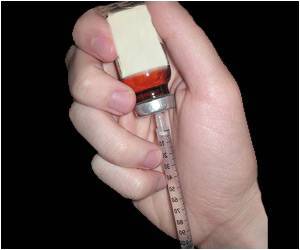Opioids, the narcotic painkillers, can cause addiction in some patients undergoing major operations. Non-opioid users are more likely to have shorter hospital stays than opioid users.

"Over 75 percent of our elective colorectal patients underwent surgery without requiring narcotic analgesics postoperatively, including after discharge," said lead author Sophia A. Horattas, MD, of Cleveland Clinic Akron (Ohio) General Hospital."During this time, period our patient satisfaction scores improved as well as patients' perceptions of pain control."
The protocol used by the team, Enhanced Recovery After Surgery (ERAS), includes a patient education portion about pain management before procedures, pre-emptive pain management, use of a non-opioid general anesthesia during operations, modified blocks of the abdominal nerves, and postoperative programmed non-narcotic analgesics.
All eight general surgeons at Cleveland Clinic Akron General adopted the protocol in 2016, and the study researchers evaluated outcomes of 155 patients who had elective (not emergency) colon operations with resection after the ERAS protocol.
Overall, 83 percent (128) of patients did not need narcotic medications after their operations. Among those who did, use of opioids before procedures was an indicator that they would need opioids to manage pain afterward, as nine of 15 such patients (56 percent) did. Among the remaining 140 patients who did not use opioids before surgery, 85 percent (119) did not require narcotics afterward.
The researchers found that patients on narcotic pain management after operations typically spent more time in the hospital; an average of 2.7 days vs. 2.3 days for the non-narcotic group. A key element of the protocol is providing a patient education discussion before the operation, which involves the patient meeting with the surgeon and nursing care coordinator.
Advertisement
"Patient education played a large role in protocol compliance, and patient satisfaction improved as they were able to avoid prolonged fasting, achieve improved pain control without the side effects of narcotic analgesia, and be discharged home earlier."
In the operating room, patients underwent anesthesia with ketamine, which induces and maintains anesthesia, and lidocaine, a numbing agent, both of which achieve analgesia and sedation without opioids. Before the surgeon made the incision, patients received a transversus abdominis plane (TAP) nerve block to provide pain relief immediately and for up to 72 hours after the operation. Surgeons at Cleveland Clinic Akron General have since adopted ERAS for other major abdominal operations, such as bariatric procedures, gynecological and genital/urinary tract procedures, and operations of the liver and gallbladder.
Dr Horattas said other institutions can replicate a similar ERAS protocol by first identifying key personnel in other hospital departments to participate in the team. At Cleveland Clinic Akron General, representatives from the departments of surgery, anesthesia, pharmacy and nursing met to discuss the goals of ERAS and the resources at their disposal.
"Our protocol was unique in our approach to patient and interdepartmental education as well as our multimodal analgesia with TAP/rectus nerve blocks and close protocol adherence," Dr Horattas said. "One of the great things about our protocol is its reproducibility. Once we developed our program, we found that it could be standardized across departments with consistently reproducible results."
Source-Eurekalert






